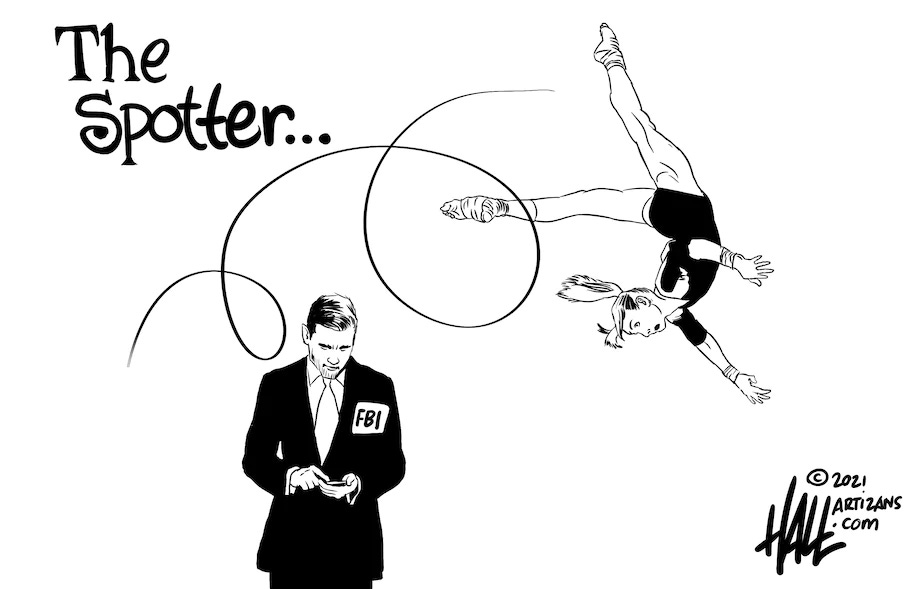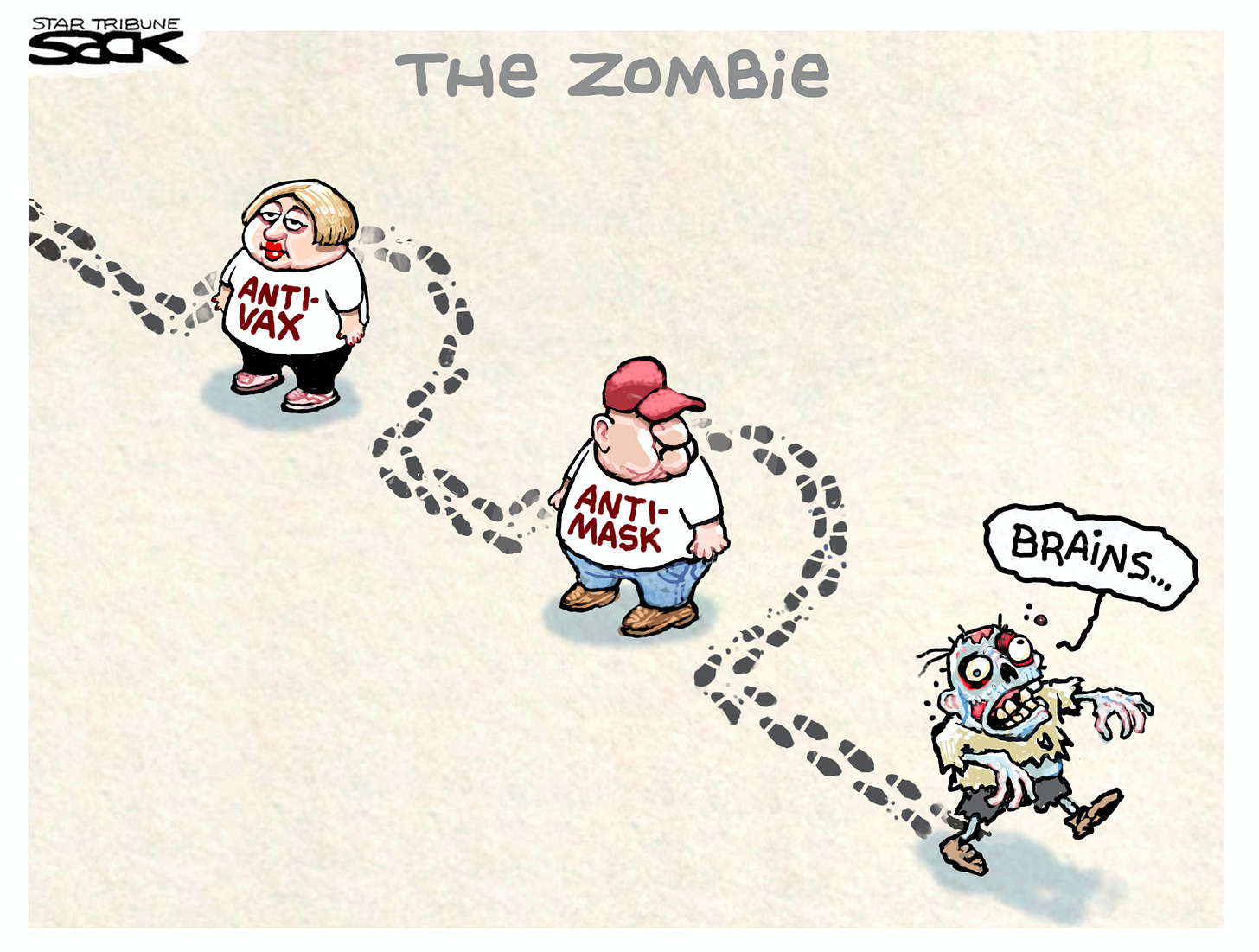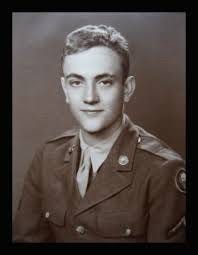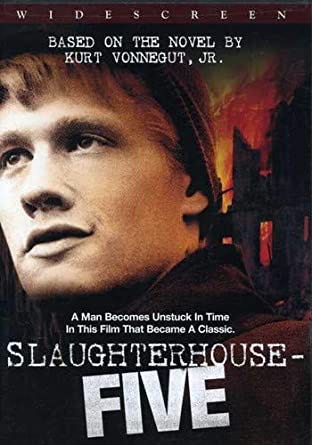Kurt Vonnegut, Off-Broadway: Part II
A fun Q & A session from 1970: "America is really indefensible."
Here’s the conclusion of my Vonnegut saga that began on Saturday. Again: the occasion was the opening of his first play, Happy Birthday, Wanda June, in New York, in the autumn of 1970, and my close encounter with him, via my first job out of college. (Or you can read all that and more in my little e-book, Vonnegut and Me.) First, the usual political cartoons. Enjoy, then please subscribe, it’s still free.
Part II: A Vonnegut Q & A
My lengthy article for the immortal Zygote was published in its December 18, 1970 edition. Titled “The Benign Lies of Kurt Vonnegut, Jr.,” it opened with my assessment of his career, a review of his novels (going as far back as Player Piano and The Sirens of Titan), and a summary of Wanda June. It closed with a partial transcript of our “rap session” with Vonnegut which, thankfully, had proved quite revealing and humorous, as he spoke more frankly that I’d ever witnessed in his print interviews. Wanda June would move to Broadway a few weeks later. From my article:
We met Kurt Vonnegut Jr. in the Theater De Lys where his play was to open in previews later in the week. There were about a dozen of us there, all representatives of New York’s “underground” or college press. We sat in the first two rows of the theater. Vonnegut ambled up the aisle, leaped upon the stage, and sat at its edge, his legs crossed like a Buddha. No on was more than 20 feet from where he sat. Vonnegut sat there with a big grin on his sun-tanned face, taller than we had imagined, his curly brown hair rumpled on top, and younger looking than his 47 years.
He speaks with a slight Midwest accent, very dry and clear; his laughter is resonant, though it explodes at times into shrill, full-blown merriment that stops just this side of a coughing fit. Vonnegut was extremely easy to chat with. He has such a youthful head on middle-aged shoulders that our sometimes enigmatic questions needed no elaboration on our part. He’s “with it.”
An associate came forth and warned photographers not to shoot too many pictures as this would “disconcert Mr. Vonnegut.” Kurt rejoined, “I doubt if anything could disconcert me.” He then explained that “this is a pacifist play and I am a pacifist. I’m against war and fighting in every way under every circumstance. It’s my particular eccentricity. Naturally, being a total pacifist is indefensible, but I’ll say I’m one whenever anyone asks.
“There was restraint to war when I was a kid. We adjusted boundaries and made agreements. We have bargaining conditions in Vietnam right now, but we’re so enormously wealthy and so self-righteous that we’re just not going to lose—it’s like a football game to us that we must win. Instead, we should declare the war over, and then bargain." When he opened the floor to questions, hands flew up. The first: Was his lead character—the trigger-happy American male played by Kevin McCarthy—modeled on Hemingway? Vonnegut replied: “No, Hemingway only shot one person…himself.”
What do you think of “revolution” in this country?
Sure there’s one, but the forces against revolution are so great, I feel it has little chance of succeeding. But if I was 17 years-old, I’d probably be making bombs too—but, you know, they never really work. Yet if it came, I would choose the side of the people. As I said before, I’m a pacifist, but regardless, while the revolt is going on, people will need help, food and medical care. That’s what I’d do. But the revolution can never succeed. You can’t talk sense with the power structure. And besides, they have too many weapons.
Do you feel that Nixon is pushing the revolution by the way he’s acting?
Undoubtedly. The trouble with Nixon is he has no stage presence. He doesn’t comfort us like a father. He’s more like the bratty little brother you’re always trying to get rid of.
Would you defend America to people overseas?
I wouldn’t defend any country. It’s such a silly thing to defend. Anyway, America is really indefensible. Our record is very poor—we had human slavery. How many other countries can boast of that?
How do your own kids feel about the state of the country?
I’ve got quite freaky kids. None of them would have served in the Army, but they got deferments anyway. They’ve dropped out, really, a couple of them are in British Columbia, learning to be farmers. I’m disappointed that they didn’t go into a profession, be lawyers or doctors in the inner city. I never did shit for people, so I hoped they would. Instead, they’re farmers! I’d rather they become judges. Justice is so pitifully poor in this country.
What do you think about drugs? One of your kids got busted for possession in New Jersey.
As a matter of fact, he’s on trial right this minute. I’m kind of interested how that turns out. I think they found one seed in his car. My director over there [he points to the wings] took 200 acid trips. He seems all right to me. At least he said “I’m all right” this afternoon at lunch over hamburgers.
I’m a juice head myself. I get a lot of mileage out of alcohol. But acid has saved lives—such as people living alone in the city. And everyone knows grass is harmless.
To get to your writing now…do you consider yourself a science fiction writer?
No, the science fiction field is a ghetto. They place your books in the tattered part of the bookstore. They can’t charge as much for your books. You’re not eligible for book clubs. No one takes you seriously.
Well then, do you consider yourself a black humorist, as some other people do?
Bruce Jay Friedman came out with a book called Black Humor and put me, John Barth, Joe Heller, Terry Southern and a couple other people together. We hardly knew each other, and certainly don’t have anything in common. But it was convenient for critics; they could just put me down as “that sniveling black humorist.”
What do you think of Catch-22?
Heller was a hero in World War II. I was a fuck-up — I just stood around with my finger up my ass all the time.
Who is the greatest living writer?
Solzhenitsyn.
Getting back to sci-fi, who is Kilgore Trout?
Actually, Kilgore Trout is me twenty years ago.
How did you get the idea for Bokonon?
He’s just my idea of a guru, a man with those wise ideas.
Do you agree with Bokonon’s claim that man has learned nothing in a million years?
Sure. It’s painfully obvious isn’t it? Are you asking me why I’m pessimistic? Well, things do seem to be getting worse, don’t they?
Were you serious about all those things you wrote in Cat’s Cradle, like boka-maru (touching feet as an act of love)?
Have you ever touchéd feet? It grew out of my feeling that everybody should be touched in America. There should be more touching. America’s such an unfriendly country. You know, you see some old wrinkled person, or some person of another skin color, and you think, “Oh, I wouldn’t want to touch him.”
I chose feet because, haven’t you noticed how good it feels to touch something with your bare feet? Like even if you step in dog shit, it feels good, and then you just go over and hose off….That’s why I chose feet.
What about the book you’re now working on about a society of robots?
I stopped writing the book. I was bored. Doing this [the theater] is more fun, it’s more sociable. There’s a lot of people here—there’s no one in my study.
And America has made you a cult-hero.
I try to be non-cooperative. I sympathize with students who have to writes theses on the Rumfoord family [from his novels]. It’s not their fault, it’s the English department for accepting such trash.
Yet you’re making a lot of money off it.
I’d just like a modest income guaranteed the rest of my life—most writers would. It’s ridiculous the sums they pay out now. But now that I have a lot of money there’s nothing I really want. I’ve tried to make myself want a Porsche.
So how do you keep your head together making all that money?
It’s not that much money, and it’s not altogether demoralizing.
You’re also getting into movies. Do you feel you can market anything?
This is America isn’t it? I’m doing that, even though films aren’t that important--you can only slightly criticize the government. You can’t do it at all on television, so books are really the radical art form. You really can get away with anything. But books are somewhat elitist—not everyone can read.
How do you explain your popularity with young people?
Well, they’re the only ones who read anything anymore…I suppose they like me because I express pretty much the way they feel about a lot of things.
Do you take yourself seriously?
I take myself more seriously than I take Billy Graham.
What about when you urge people to tell lies?
You may as well tell lies—everyone else does. But make them benign. People need good lies. There are so many bad ones.
Song Pick of the Day
And now, a few Kurt replies: Many rockers, famous and not so, have cribbed from Vonnegut or offered tributes. The Grateful Dead even published their songs as Ice Nine Music, the evil substance from Cat’s Cradle. Guitarist Joe Satriani titled a song “Ice Nine.” Ambrosia had a semi-hit with lyrics entirely from Cat’s Cradle quote, “Nice, Nice, Very Nice” in 1975. Then there’s the Born Ruffians’ “Kurt Vonnegut.” And, below, my old friend Al Stewart (who awarded me a platinum record for helping a tiny bit with “Year of the Cat,” but that’s another story), with entire song based on early Vonnegut novel, Sirens of Titan.
“Essential daily newsletter.” — Charles P. Pierce, Esquire
Greg Mitchell is the author of a dozen books, including the bestseller The Tunnels (on escapes under the Berlin Wall), the current The Beginning or the End (on MGM’s wild atomic bomb movie), and The Campaign of the Century (on Upton Sinclair’s left-wing race for governor of California), which was recently picked by the Wall St. Journal as one of five greatest books ever about an election. For nearly all of the 1970s he was the #2 editor at the legendary Crawdaddy. Later he served as longtime editor of Editor & Publisher magazine. He recently co-produced a film about Beethoven’s Ninth Symphony.





